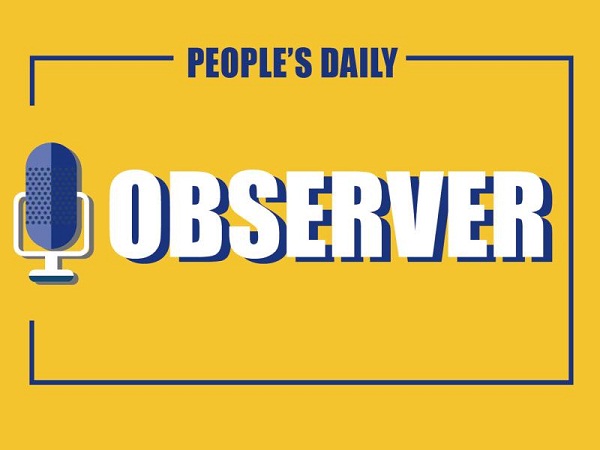
As protests over the death of George Floyd spread nationwide and the death toll from COVID-19 in the US tops 100,000, US President Donald Trump seems to be working on a "strong response" to China. Rather than putting out fires of fury and saving Americans from the virus, the president went out of his way to interfere in other countries' internal affairs. It is obviously a trick to divert public attention. However, such tricks cannot scare the Chinese people and will definitely not affect the process of enacting China's national security legislation for Hong Kong.
It's not surprising that the US government made frivolous remarks about China's "one country, two systems" practice and even threatened to end Hong Kong's preferential treatment. US double standards have reached an unprecedented level: On one hand, the US government safeguards its national security and suppresses protesters by using "the most fierce weapons." On the other hand, when China strengthens its own national security legislation in accordance with international conventions, the US makes ludicrous accusations and even meddles. In fact, making national security laws has never been within the scope of Hong Kong's autonomy. The National People's Congress of China is the legislature that has the ultimate power.
Who is undermining the security and prosperity of Hong Kong? What role has the US government played in Hong Kong's riots since last year? The US dare not tell the truth. The more the US opposes the Hong Kong national security law, the more it shows that that China has made the right move. Once those foreign powers give the signal, their accomplices in Hong Kong will carry on their riotous and illegal activities again, like they did last year. But this time, China's central government remains determined in defending its national security and the Hong Kong people will not be tricked by their schemes.
Hong Kong's preferential treatment on the economy and trade is not determined by some politicians’ remarks. Hong Kong is the largest trade-surplus region to the US, with about 1,400 US companies, 283 regional headquarters and 443 regional offices based in the city. These politicians will have to ask whether their sponsors in the business world will agree to ending Hong Kong's status. Even so, the impact on Hong Kong is manageable. The success of Hong Kong as an international financial hub today is a result of the rapid economic development of China and the hard work of Hong Kong people, not handouts from other countries. Of course, there will be losses should Hong Kong's special status be taken away. But the losses are nothing compared to the threat of secessionists and violence.
The HKSAR Government has made sufficient preparations. Support from the central government also serves as the backbone of Hong Kong. The response of external forces not only warns us that the legislation must not be delayed, but also help Hong Kong people see the real faces of these external forces. Some Hong Kong media said that it is indeed ironic that the US is sanctioning the economy of Hong Kong but claiming "stand with Hong Kong" in retaliation to China's national security law. Which side has been sowing trouble in Hong Kong society? Hong Kong people have the answer.
In the 71 years since its founding, the People's Republic of China has never given in to threats from external forces. Today, China is determined to defend its national security and safeguard Hong Kong's prosperity and stability.
(Compiled by Yang Shiqi and Li Bowen)


